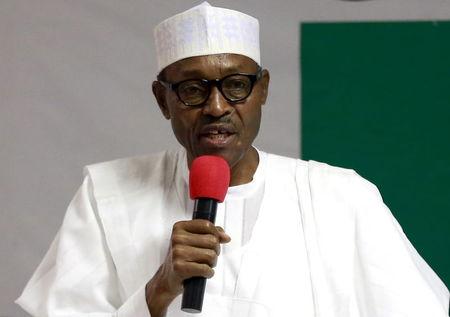Advertisement
Nigeria's president meets campaigners for girls abducted by Boko Haram
ABUJA (Reuters) - Nigeria's President Muhammadu Buhari on Wednesday held his first meeting with campaigners calling for the release of more than 200 schoolgirls abducted by Boko Haram militants in the northeastern town of Chibok last year.
The militant Islamist group, whose six-year insurgency has seen thousands killed in Africa's most populous nation and top oil producer, caused an international outcry when it took the girls from secondary school dormitories in April 2014.
Buhari praised members of the Bring Back Our Girls group for their efforts to prevent the missing children being forgotten.
"Nobody in Nigeria or outside could have missed your consistency and persistence," said Buhari during the meeting at his presidential villa in the capital, Abuja.
"I think you will agree that the present government takes the issue very seriously," he said, adding that the military was working with neighboring countries to ensure a regional task force could fight the insurgency.
Earlier this year an Amnesty International report said that Boko Haram had kidnapped at least 2,000 Nigerian women and girls since the start of 2014, many of whom were sexually abused or trained to fight.
In a statement, the Bring Back Our Girls campaigners said the safe return of the schoolgirls would "amount to the strongest statement that our government has respect for the sanctity and dignity of every Nigerian life".
The frequency of attacks by suspected Boko Haram militants in northern states has increased since the president vowed in his inauguration speech of May 29 that the group would be crushed.
More than 200 people died in a string of attacks last week and dozens more have been killed in northern Nigeria and Chad in the last few days.
Boko Haram, which has been trying to establish a state adhering to strict sharia law in northeast Nigeria, controlled an area larger than Belgium at the end of 2014.
Nigerian and regional forces pushed the jihadists out of most of that territory in the last few months but the militants have a last stronghold in the Sambisa forest reserve and, with the increase in attacks, appear to be growing in strength.
(Reporting by Felix Onuah; Writing by Alexis Akwagyiram; Editing by Lisa Shumaker)



















Add new comment